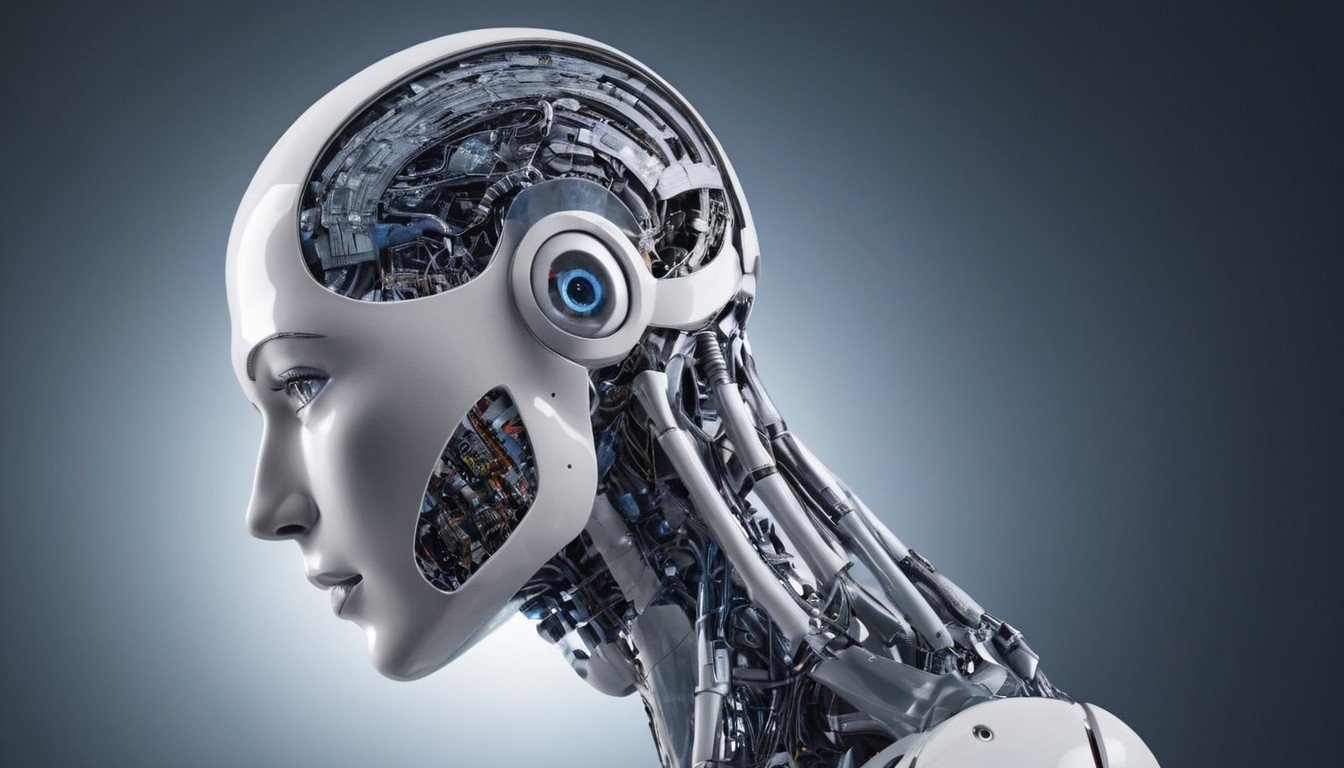Artificial Intelligence (AI) is reshaping the world at an unprecedented pace. As we step into 2024, the landscape of AI continues to evolve, presenting new opportunities and challenges. Here are the top ten AI trends that are set to redefine industries and revolutionize the way we live and work.

1. Autonomous Vehicles Take the Lead
The race towards autonomous vehicles is accelerating, with major players in the automotive industry investing heavily in AI-powered technology. Expect to see significant advancements in self-driving cars, making transportation safer, more efficient, and environmentally friendly.
2. Personalized Healthcare Through AI
AI is revolutionizing healthcare by enabling personalized treatment plans tailored to individual patients. From predictive analytics to virtual health assistants, AI-driven solutions are optimizing patient care, diagnosis, and drug discovery processes.
3. Enhanced Cybersecurity Measures
With the increasing sophistication of cyber threats, organizations are turning to AI to bolster their cybersecurity defenses. AI-powered algorithms can detect and respond to threats in real-time, minimizing the risk of data breaches and cyber attacks.
4. Increased Reality (AR) and Computer generated Reality (VR) Joining.
AR and VR technologies are merging with AI to create immersive experiences across various industries, from gaming to education and retail. Expect to see AI-driven advancements in creating lifelike simulations and enhancing user interaction.
5. AI-Powered Content Creation and Curation
Content creation is becoming more efficient and targeted with AI algorithms analyzing data to generate compelling and personalized content. From articles to videos, AI-driven tools are transforming the way content is produced and consumed.
6. Smart Cities for Sustainable Living
AI is driving the development of smart cities, where interconnected systems optimize resource allocation, traffic management, and energy consumption. These initiatives aim to create more sustainable and livable urban environments.
7. Voice Assistants Redefining User Experience
Voice-activated assistants powered by AI are becoming ubiquitous, revolutionizing the way we interact with technology. From smart speakers to virtual assistants on smartphones, AI-driven voice technology is enhancing convenience and accessibility.
8. Predictive Analytics for Business Insights
Organizations are utilizing artificial intelligence controlled prescient examination to acquire significant experiences into purchaser conduct, market patterns, and functional effectiveness. These experiences empower organizations to settle on information driven choices and remain in front of the opposition.
9. AI in Education for Personalized Learning
AI is transforming education by providing personalized learning experiences tailored to individual students’ needs and learning styles. Adaptive learning platforms powered by AI algorithms are reshaping traditional classroom settings.
10. Ethical AI Governance and Regulation
As AI technologies become more pervasive, the need for ethical AI governance and regulation becomes paramount. Governments and organizations are increasingly focusing on establishing guidelines and frameworks to ensure the responsible development and deployment of AI systems.

In conclusion, 2024 is poised to be a pivotal year in the realm of Artificial Intelligence, with groundbreaking innovations and transformative applications reshaping industries and society as a whole. By staying abreast of these top ten AI trends, businesses and individuals can harness the full potential of AI and navigate the future with confidence.
(FAQs) about the topic of artificial intelligence (AI) trends in 2024:
1. What are the key Artificial Intelligence trends to watch for in 2024?
In 2024, several key AI trends are expected to dominate various industries. These include advancements in autonomous vehicles, personalized healthcare, cybersecurity measures, integration of augmented reality (AR) and virtual reality (VR) with AI, AI-driven content creation, smart city initiatives, voice assistants, predictive analytics in business, AI in education, and ethical AI governance.
2. How is Artificial Intelligence reshaping the automotive industry in 2024?
AI is transforming the automotive industry by accelerating the development of autonomous vehicles. Companies are investing heavily in AI-powered technology to enhance safety, efficiency, and environmental sustainability in transportation.
3. What role does Artificial Intelligence play in personalized healthcare?
AI is revolutionizing healthcare by enabling personalized treatment plans tailored to individual patients. From predictive analytics to virtual health assistants, AI-driven solutions optimize patient care, diagnosis, and drug discovery processes.
4. How does Artificial Intelligence contribute to cybersecurity measures?
AI-powered algorithms play a crucial role in bolstering cybersecurity defenses by detecting and responding to threats in real-time. This helps minimize the risk of data breaches and cyber attacks, ensuring the security of sensitive information.
5. What are the benefits of integrating AR and VR with AI?
Integrating AR and VR technologies with AI creates immersive experiences across various industries, such as gaming, education, and retail. AI-driven advancements enhance user interaction and create lifelike simulations, improving overall user experience.
6. How is AI impacting content creation and curation?
AI algorithms analyze data to generate compelling and personalized content efficiently. This includes articles, videos, and other forms of media, transforming the way content is produced and consumed by users.
7. What are smart cities, and how does AI contribute to their development?
Smart cities utilize interconnected systems and AI algorithms to optimize resource allocation, traffic management, and energy consumption. These initiatives aim to create more sustainable and livable urban environments by leveraging technology effectively.
8. How are voice assistants powered by AI changing user experience?
Voice-activated assistants powered by AI, such as smart speakers and virtual assistants on smartphones, are enhancing convenience and accessibility in technology interactions. Users can perform tasks and access information hands-free using voice commands.
9. How do businesses benefit from AI-powered predictive analytics?
Businesses leverage AI-powered predictive analytics to gain valuable insights into consumer behavior, market trends, and operational efficiency. These insights enable data-driven decision-making and help companies stay competitive in their respective industries.
10. What measures are being taken to ensure ethical AI governance and regulation?
Governments and organizations are increasingly focusing on establishing guidelines and frameworks for the responsible development and deployment of AI systems. This includes addressing ethical concerns, ensuring transparency, and promoting accountability in AI technologies.

